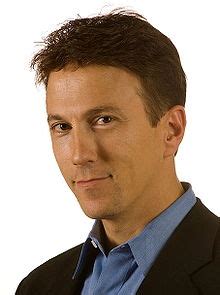A Quote by Douglas Coupland
So much information lacks a good way to store it, especially when it's all digital; sometimes it requires old technology to go back and retrieve it.
Related Quotes
What has happened is that genetics has become a branch of information technology. It is pure information. It's digital information. It's precisely the kind of information that can be translated digit for digit, byte for byte, into any other kind of information and then translated back again. This is a major revolution. I suppose it's probably "the" major revolution in the whole history of our understanding of ourselves. It's something would have boggled the mind of Darwin, and Darwin would have loved it, I'm absolutely sure.
Whether it's by helping us search for health-related information, connecting us with doctors through online portals, or enabling us to store and retrieve our medical records online, the Internet is starting to show the promise it has to transform the way people interact with and improve their own health and wellness.
If you think of dramaturgy in North America, which is so realistic and so literal sometimes, sometimes what theaters - especially dramaturgs - ask for is more information, which sometimes can really weigh down a play. There's only so much information a play can have. If you start putting in so much information, it becomes something completely different, it doesn't sing.
Most of my colleagues go on backpacking trips when they have to do some thinking. I go to a good hardware store and head for the oiliest, dustiest corners... If they're really good, they don't hassle me. They let me wander around and think. Young hardware clerks have a lot of hubris. They think they can help you find anything... Old hardware clerks have learned the hard way that nothing in a hardware store ever gets bought for its nominal purpose. You buy something that was designed to do one thing, and you use it for another.
What’s next for technology and design? A lot less thinking about technology for technology’s sake, and a lot more thinking about design. Art humanizes technology and makes it understandable. Design is needed to make sense of information overload. It is why art and design will rise in importance during this century as we try to make sense of all the possibilities that digital technology now affords.






































